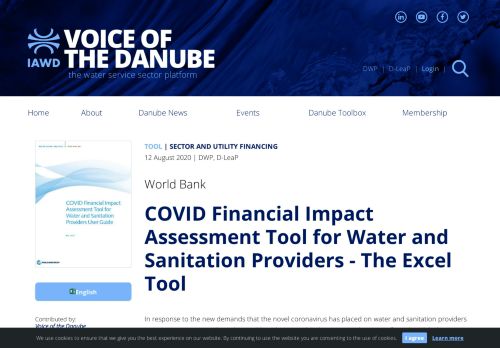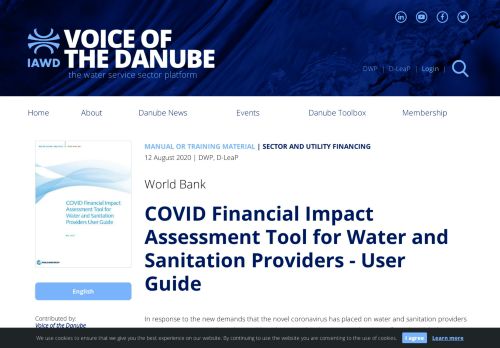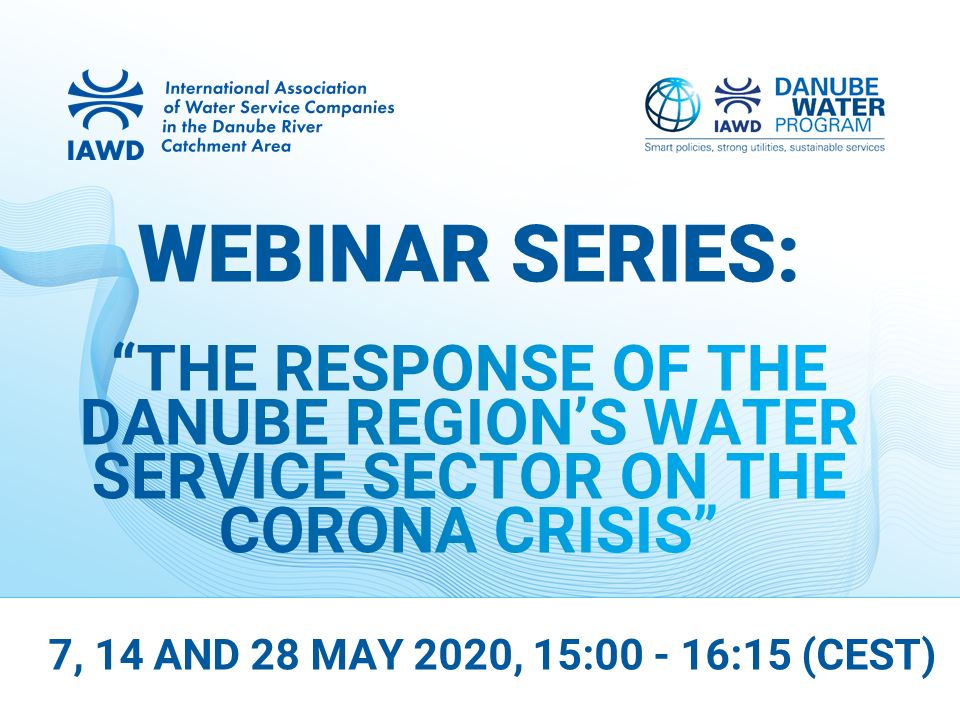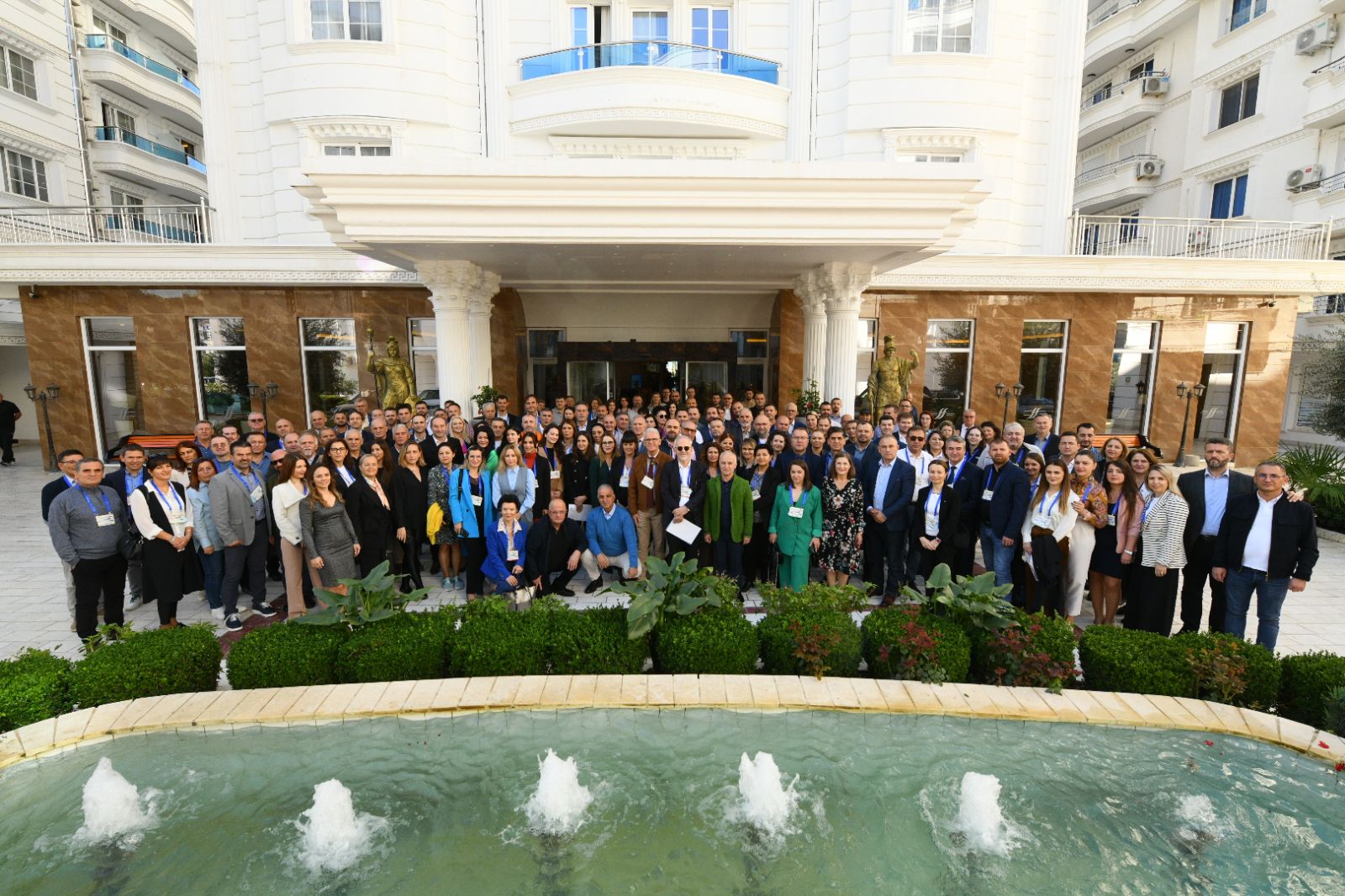
Voice of the Danube
13 August 2020
At a casual glance, the water service sector in the Danube region has shown reassuring resilience in the face of an unprecedented global health crisis. But the devil is in the details, and more and more utilities find themselves struggling financially, having to do “more with less”. Now the World Bank rolls out a tool for assessing the real financial impact of the crisis. It is easy to use and will provide a solid factual basis for inevitable funding discussions with authorities, investors and lenders.
Imagine a world in which water demand peaks, simply because people need to wash their hands three or four times more often than before. Not some of them. All of them. Over weeks and months, maybe years.
Imagine that at the same time, a sizable share of those customers is furloughed or unemployed, having to survive on reduced incomes that in some cases will barely cover the grocery bill and maybe the rent, but water and energy? Get real!
Imagine that meanwhile governments are frantically dealing out emergency regulations to usher society through total lockdowns and subsequent economic depressions, some of those with serious impact on the bottom line of utilities.
This is not a dystopian disaster movie. It’s the new reality, dictated by the COVID-19 virus.
In April and May 2020, the Danube Water Program gathered water sector professionals from around the world in the virtual space, holding much attended webinars on the impact of the pandemic on utilities in the Danube region. Panellists proudly reported that they had managed to protect their staff, ensured uninterrupted service, and often found an uncommon level of public appreciation for their efforts. Some also mentioned growing disparities between operating costs and income, putting necessary investments in question and even presenting long-term threats to service quality and continuity.
The reasons for such calamities are obvious: The crisis response shouldered utilities with additional costs for the staff’s personal protection equipment, security personnel guarding offices and plants and other necessities. At the same time, businesses and factories went through lockdowns, reducing demand from reliably paying customers, while private water use peaked and governments introduced emergency measures to provide free water to the vulnerable populations, suspend service disconnections resulting from lack of payment, freeze tariff increases, and use tankers to enhance services, among others.
In a considerable number of cases, declining tariff revenues and increasing operating expenses may add up to liquidity problems that risk sustainability of water services. Sooner rather than later, stakeholders everywhere in the region will need to talk about money, and without hard data, discussions cannot be productive.
Fully aware of the problem, the Bank World Bank's Water Global Practice team has created tools that will help utilities to clarify their financial situation in discussions with governments, investors and lenders:
The COVID Financial Impact Assessment Tool for Water Service Providers (WSPs) is a financial planning tool that quantifies the financial impact of pandemic-related emergency measures on the monthly cash flows of the water and sanitation service providers. It is quite user-friendly, and everybody with moderate MS Excel skills will find it easy to use.
Because the World Bank encourages dissemination of its knowledge, this tool is freely available for public use and downloadable here:
- Financial Impact Assessment Tool for WSPs: The Tool in Excel File
- Financial Impact Assessment Tool for WSPs: User Guide
Initiatives are under way to scale up the training on the COVID Financial Impact Assessment Tool for WSPs, by the World Bank staff, donors and development partners.
The World Bank appreciates feedback and information on the major findings resulting from the use of the tools. It is also aware that organizations may want to customize a version of the model for more detailed analysis.
Your contact for further information and discussion on any of these points is Aileen Castro (acastro2@worldbank.org) of the World Bank.
VoD - COVID Financial Impact Assessment Tool for Water and Sanitation Providers - The Excel Tool
In response to the new demands that the novel coronavirus has placed on water and sanitation providers (WSPs) in emerging markets, the World Bank Water Global Practice, with support from the Global Water Security and Sanitation Pa...
VoD - COVID Financial Impact Assessment Tool for Water and Sanitation Providers - User Guide
In response to the new demands that the novel coronavirus has placed on water and sanitation providers (WSPs) in emerging markets, the World Bank Water Global Practice, with support from the Global Water Security and Sanitation Pa...





